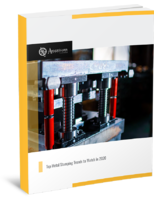ASTM Standard will aid evaluation of architectural coatings.
Press Release Summary:
Proposed standard, ASTM WK32654, Practice for Selecting Wood Substrates for Weathering Evaluations of Architectural Coatings, is being developed by Subcommittee D01.42 on Architectural Coatings. Once approved, this standard will offer guidelines to chemists who are formulating new paint or other finishes for use with wood in architectural applications. End users will also find this proposed standard helpful for comparing performance of various architectural finishes.
Original Press Release:
ASTM Paint Committee Developing Standard for Evaluating Weathering Performance Characteristics of Architectural Coatings
W. CONSHOHOCKEN, Pa.—A proposed new ASTM International standard will offer guidelines for selecting wood substrates for the evaluation of the weathering performance of architectural coatings, such as exterior paints, primers and deck finishes.
The proposed standard, ASTM WK32654, Practice for Selecting Wood Substrates for Weathering Evaluations of Architectural Coatings, is being developed by Subcommittee D01.42 on Architectural Coatings, part of ASTM International Committee D01 on Paint and Related Coatings, Materials and Applications.
According to D01 member Marek Gnatowski, Ph.D., the need for the proposed standard is the result of the growing complexity of wood-based materials used in architectural applications, techniques of architectural product finishing and the demand for high quality coatings capable of performing on a wide variety of wooden substrates.
“Properly designed and tested coatings increase the longevity of architectural elements and reduce maintenance costs to building owners,” says Gnatowski, technical director and president, Polymer Engineering Co. Ltd. “On the other hand, forest resources that supply high quality old growth solid wood to the construction industry for architectural applications are becoming scarce.”
In order to meet market demands, a variety of wood composite products have entered the market, such as gluelams, a variety of wafer boards, finger joint siding and composite trims. In addition, younger trees are now being used to make home sidings. Marek says the proposed standard will aid in the development of paint for these new lines of architectural products.
Once it has been approved, the standard will offer guidelines to chemists who are formulating new paint or other finishes for use with wood in architectural applications. In addition, end users will find the proposed standard helpful in comparing the performance of a variety of architectural finishes.
Gnatowski also notes that material covered by ASTM WK32654 is widely used as finishes for home sidings and trims, as well as other architectural elements such as fences, decks, garden furniture, gazebos and playground equipment.
All interested parties are invited to join in the development of ASTM WK32654.
ASTM International welcomes participation in the development of its standards. For more information on becoming an ASTM member, visit www.astm.org/JOIN.
ASTM International is one of the largest international standards development and delivery systems in the world. ASTM International meets the World Trade Organization (WTO) principles for the development of international standards: coherence, consensus, development dimension, effectiveness, impartiality, openness, relevance and transparency. ASTM standards are accepted and used in research and development, product testing, quality systems and commercial transactions.
For more news in this sector, visit www.astm.org/sn-transportation or follow us on Twitter @ASTMTransport.
ASTM Committee D01 Next Meeting: June 23-25, 2013, in conjunction with D02 June meeting, Montreal, Quebec, Canada
Technical Contact: Marek Gnatowski, Ph.D., Polymer Engineering Co. Ltd., Burnaby, British Columbia, Canada, Phone: 604-298-7633; pecltd@telus.net
ASTM Staff Contact: Jeff Adkins, Phone: 610-832-9738; jadkins@astm.org
ASTM PR Contact: Barbara Schindler, Phone: 610-832-9603; bschindl@astm.org




